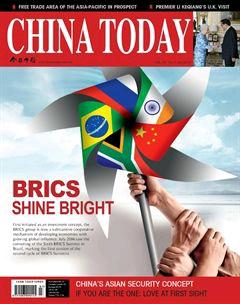LETTERS
Many of us assume that life on Earth will continue to fl ourish for eons to come. But this is a misguided belief. Scientifi c research has shown that the Earths environment was too harsh to support any life form for four billion years. So what we take for granted is actually very precious and vulnerable. It took around three billion years of evolution on Earth for complicated animal and human organisms to come into existence. Nobody wants them to die out as a result of pollution-induced global warming. We should instead cherish and protect our beautiful planet. Continuing to over-exploit the Earths natural resources without taking into account the impact on future generations is ignorant and irresponsible.
Xin Yu
Shanxi Province, China
Chinas educational authority published earlier this year draft reforms to the college entrance exam. Among the proposed changes, most notable is the reduction from 150 to 100 marks of the English language section, and the separate holding of the English exam twice a year. The score for the Chinese section, meanwhile, will rise from the current 150 to 180 marks. This change implies a greater demand for aptitude in the mother tongue and less in English language learning, on which there has been excessive emphasis in China over the past decade. But English will still be a main subject in the Chinese school curricula. No student hoping to advance academically and professionally can afford to disregard English. It is the working language of most international organizations and the most used in global trade and academic exchanges. Many companies in China, in particular transnational ones, expect their employees to be profi cient in English. It nonetheless seems to me that educational authorities are re-balancing the emphasis on Chinese and English language learning.
Chu Jing
Guangzhou, Guangdong Province, China
A few days ago I went to a bookstore near my offi ce to buy a text- book for my son. I was surprised at how few customers there were compared to two or three years ago when I last went, and that two of its four fl oors are no longer in use. It then occurred to me that my teenage son has not read a book in print (excluding textbooks) for a good while, and seldom picks up the newspaper we subscribe to. Almost all his recreational reading is on-screen. My husband and I also read more on the computer and our cell phones than on paper. That print media is declining to the point of demise seems an irreversible trend. But what matters most is that we still have access to good books, in whatever format, to nourish our mind and soul.
Fei heping
Nanjing, Jiangsu Province, China

